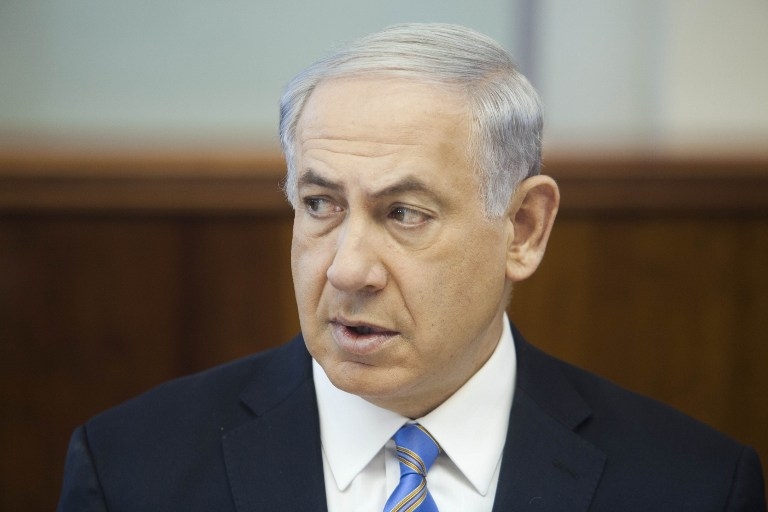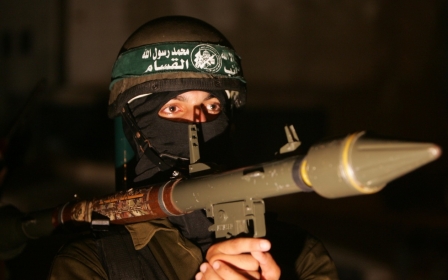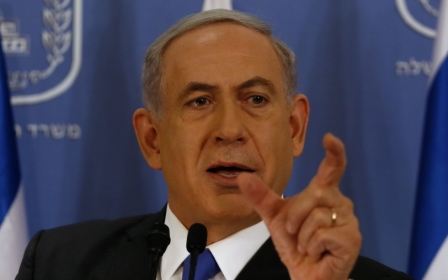Hamas’ refusal of ceasefire eludes Israelis

One of the most famous pictures from the first Israeli war against Lebanon in 1982 shows Ariel Sharon, then defence minister, waving his hand as he greets an Israeli armoured personnel carrier crossing the border. Similar pictures and videos appeared in Israeli and international media at the beginning and during the second war against Lebanon, 24 years later. The entrance of Israeli tanks and soldiers into Gaza at 8:00pm last night, however, was not celebrated by the Israeli media.
Only blurred pictures, taken by military night-cameras, showed them crossing the fence, which serves as a border between Israel and the Gaza Strip. Israel is in no hurry to show its own people and the world what the much awaited and feared ground operation looks like.
Certainly, Israel poured large forces into the Gaza Strip, especially into areas north and east of Gaza City. Areas east of Rafah meanwhile came under heavy bombardment and shelling from the air and ground.
The Israeli army claims that it already discovered at least ten tunnel shafts leading from Gaza into Israel, and that clashes took place at those points of entry between Israeli forces and Palestinian fighters. One Israeli soldier was killed (although it is still possible he was hit by "friendly fire") according to the same Israeli reports. At the same time, a dozen Palestinian fighters were killed and another dozen captured.
With clouds of battle hovering over Gaza, it is difficult to have a clear view, although it is probably fair to say that the Israeli military operation has been quite limited so far. It hasn’t yet reached the urban areas of Gaza City, one of the most densely populated places in the world, where casualties are likely to be highest.
If Israeli Prime Minister Benjamin Netanyahu was told more than a month ago, right after the kidnapping of the three Israeli settlers that the massive arrest campaign against (mostly) Hamas activists in the West Bank would lead to a ground operation in Gaza, he would have probably chosen another way to react. But things got out of hand. The brutal killing of the Palestinian youngster, Mohammed Abu Khdeir, in Shuafat led to violent demonstrations in East Jerusalem, as well as Palestinian villages and cities inside Israel. These eruptions augmented tensions all over the country.
While this likely prompted some rash decisions to be made, Israel’s greatest blunder has been its underestimation of Hamas' reaction to Israeli actions in the West Bank.
Israel didn't expect Hamas to start launching rockets from Gaza. It certainly did not expect the massive rocket attack which followed after Israel reacted, and it surely did not expect Hamas to flatly refuse the Egyptian offer of a ceasefire. According to the Israeli understanding, after more than one week of heavy bombardment, Hamas was supposed to be beaten and deterred, begging the Israelis to stop. Instead, it continued firing rockets into Israeli cities as far north as Haifa, even setting its own conditions for a ceasefire. Those conditions included an end the Israeli (and Egyptian) blockade of Gaza, the release of Hamas prisoners, and also allowing Gazans to pray in al-Aqsa mosque in Jerusalem.
Netanyahu, already pressured by his outspoken right-wing opposition in the government - as well as large parts of the media - was not able to accept these "humiliating" conditions. The army - which was also a target of internal criticism concerning its reluctance to use its huge force against Hamas and which was feeling frustrated by the apparent "deuce" between Israeli air strikes and Hamas' rockets - also feared that accepting Hamas's conditions would serve as an icon of victory by the group.
With the aerial campaign running out of targets, and after the killing four Palestinian children on Gaza beach, there was concern that intensified shelling might only further taint Israel's international image, without giving concrete results.
The reportedly failed Hamas attempt to infiltrate Israel through a tunnel yesterday morning, gave Netanyahu and the army exactly what they needed, a well-defined and limited target and the discovering and destruction of all tunnels leading from Gaza into Israeli territory.
Achieving this target would satisfy the majority of the Israeli public, without raising too many fears about a long and bloody stalemate in Gaza. Such an operation would require Israel to enter no more than three kilometres into Palestinian territory, without really going into the densely populated areas. True, in order to destroy the rocket launchers, Israel would have to enter much further, but the risks would also be much higher.
However, there may be another reason for the limited scope of this military ground operation. Despite the public mood in favour of a "thorough response" to Hamas, it seems that Netanyahu and the army are still waiting for an early ceasefire.
Hamas has rejected the Egyptian offer and has turned to the Turkish-Qatar channel, which seems much less favourable to Israel. With a limited ground operation, openly supported by the United States and silently supported by others, including Arab countries like Egypt and Saudi Arabia, Israel hopes to pressure Hamas to agree to a ceasefire on the lines of the Egyptian offer, maybe with additional powers given to President Abbas in the Gaza Strip, something which Netanyahu was reluctant to do so far.
But there is always a fear that such a ceasefire will not be achieved and this "limited" operation will spill over. Then we will find ourselves in a totally new game that no one – neither Israel, nor Hamas, the Palestinian Authority and Egypt nor anyone else – will be able predict the outcome.
- Meron Rapoportis an Israeli journalist and writer, winner of the Napoli International Prize for Journalism for a inquiry about the stealing of olive trees from their Palestinian owners. He is ex-head of the News Department in Haaertz, and now an independent journalist.
The views expressed in this article belong to the author and do not necessarily reflect the editorial policy of Middle East Eye.
Photo credit: Prime Minister Benjamin Netanyahu may have underestimated Hamas' reaction to Israeli operations in the West Bank (AFP)
New MEE newsletter: Jerusalem Dispatch
Sign up to get the latest insights and analysis on Israel-Palestine, alongside Turkey Unpacked and other MEE newsletters
Middle East Eye delivers independent and unrivalled coverage and analysis of the Middle East, North Africa and beyond. To learn more about republishing this content and the associated fees, please fill out this form. More about MEE can be found here.




